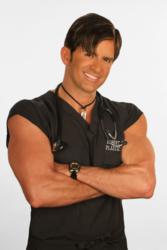OP: I think your question was very reasonable, as I understood your question to mean "what specialties are more competitive" . I'm sorry to see that you got some negative responses.
Competitiveness is best gauged by the average USMLE Step 1 scores, and not percentage of applicants who match, because a lot of self-selection goes on.
Here is a list of Match outcomes. It's not for the most recent years, ( I did only a cursory Google search ) but it will give you an idea of which specialties are the most competitive.
http://www.nrmp.org/wp-content/uploads/2013/08/chartingoutcomes2011.pdf ( this is for 2011. The format was easier to follow than the 2014 results I found. Scroll down and look for the mean match scores for each specialty.
http://medicine.osu.edu/students/life/academic_advising/usmle/specialty_selection/pages/index.aspx
I think you're wise to have some idea of how competitive a specialty is early in your medical career, so that you have realistic expectations of your chances. If you find that you are at the top of your class in your first year, you are more likely to do well on your Step exams and will be able to pick whatever you're most interested in. If your performance is average, then you will be able to adjust your plans and goals accordingly.
However, I will comment on "pecking order " in general. I have seen posts in which students ask about which specialties have the most prestige, both within medicine and to the lay public. In my experience, there is little to no prestige associated with the more competitive specialties among physicians. While there may be some "pecking order" among residents ( mostly muttering complaints and eye rolling among residents within a specialty ) , I have encountered none that I am aware of outside (or inside, for that matter) of academia. In practice, we are all very happy to get help from whichever specialist we need. Pediatrics may be easy to match into, but I can assure you, when I'm taking care of a sick child, whether one of my patients or one of my own childern, I'm very grateful for the help of a pediatrician. And my assumption, when dealing with any specialty outside of my own, is that the physician went into that specialty because they wanted to, not because they couldn't match into derm or ortho.
On another note: One comment about the reference to "academic plastic surgeons" above. Don't underestimate the quality of medicine outside of university medical centers. While it's true that the very biggest, most complex and cutting edge procedures are done in tertiary care centers, I you might be surprised to see how complex the procedures done in community hospitals can be. As you all go through your medical training, remember that every single physician practicing in small community hospitals originally trained in a university hospital, and most did residencies in tertiary centers. Academicians, unsurprisingly, push academia, but it's not the only way to go.
As for plastic surgery, yes, face transplants and conjoined twin surgery will be at tertiary care centers. But many bigger cases, including craniofacial surgery and microsurgery cases, are done at community hospitals. For example, the acknowledged worlds experts on ear reconstruction, nasal reconstruction, and rhinoplasty all work or worked out of small community hospitals or outpatient surgery centers. The pioneering microsurgery group in the country operates out of a community hospital.
After I completed my residency in surgery, I was moonlighting in an ER in a rural area for a few months. I subsequently ran into one of the most senior surgeons from my residency. I told him how impressed I was with the quality of the surgeons in this small hospital. He laughed at me and said, " who do you think we've been training for the past 50 years". So, regardless of specialty, don't underestimate what goes on in private practice.


 because PLENTY of the best students with the highest step 1 scores will choose a less competitive specialty because....surprise surprise...they actually have a medical interest in that specialty. Only a FOOL would dedicate their life to a field just because it is the "most competitive" specialty at the time (and yes- what's competitive changes. In the past Anesthesiology and Radiology was the near the top in competitiveness and they've gone down).
because PLENTY of the best students with the highest step 1 scores will choose a less competitive specialty because....surprise surprise...they actually have a medical interest in that specialty. Only a FOOL would dedicate their life to a field just because it is the "most competitive" specialty at the time (and yes- what's competitive changes. In the past Anesthesiology and Radiology was the near the top in competitiveness and they've gone down).